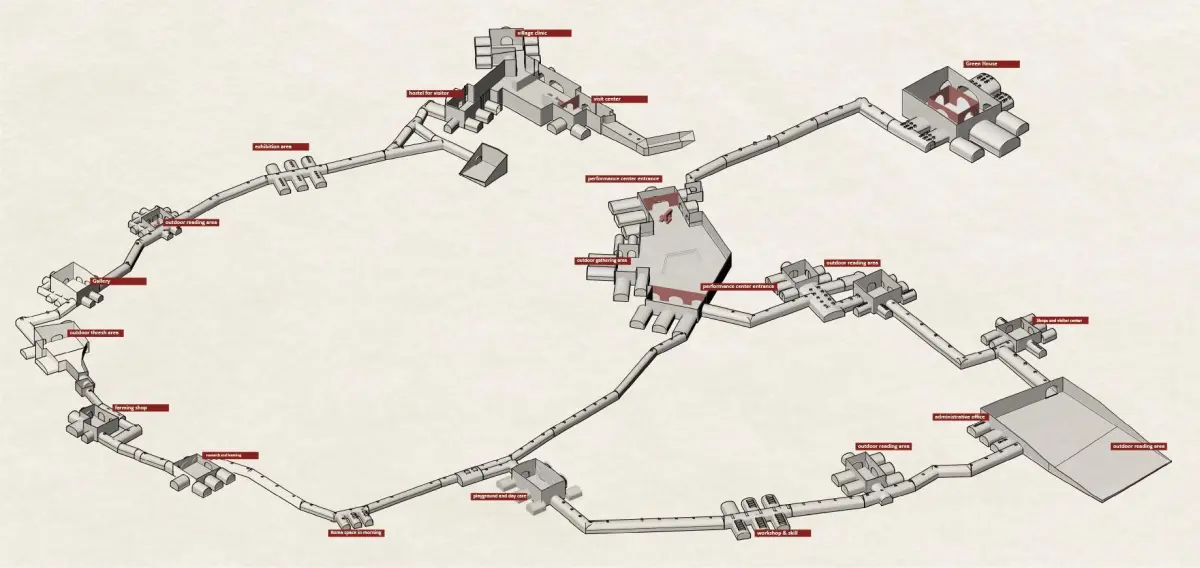
Regenerated Old Village in Northern China
BY Zhang Qining
SUPERVISED BY Assoc. Prof. Johannes Widodo (Dr.)
STUDIO THEME ASIAN MODERN HERITAGE IN THE CONTEXT OF CHANGE: CONSERVATION FOR SUSTAINABILITY
Abstract
Because of the development of the economy, most yaodong are ignored and abandoned by local people, people flow into big cities to get work opportunities, residents living in rural areas have moved out of yaodong, resulting in the abandonment of cave dwellings, the original community has lost vitality, and resulting in increased rural aging. People attempt to solve this problem, they started to develop tourism in the village, and it has become the fastest-growing industry in rural China.
During the case studies, I found that a lot of villages have been over-developed for tourism, which destroys the historical heritage. And the successful case always focused on keeping the character of traditional architecture and environment.
So with a series of previous research, I think revitalizing village should start by creating a comfortable life sense, building an ecological foundation, putting the interests of local people in the first spot. Phased interventions that insert small-scale architectural functions into the village that relate to its historical context will introduce urban resources to Yaodong Village and improve conditions for long-time residents. Improve living facilities as much as possible, create comfortable and convenient living scenes, and attract young people back to the village.
Supervisor Comments
The conservation thesis suggestion on the historical and traditional Yaodong (home cave) legacy is strong because it treats it as a living heritage rather than a tourist attraction. The planning and design are based on a thorough examination of various underground space typologies for diverse uses, as well as the introduction of additional functions and facilities to the existing settlement. The idea used a novel way to make the rural village appealing to future generations of people while avoiding the trap of tourism development. It also effectively showed the feasibility of combining environmental and cultural preservation with long-term social and economic growth.
- Assoc. Prof. Johannes Widodo (Dr.)